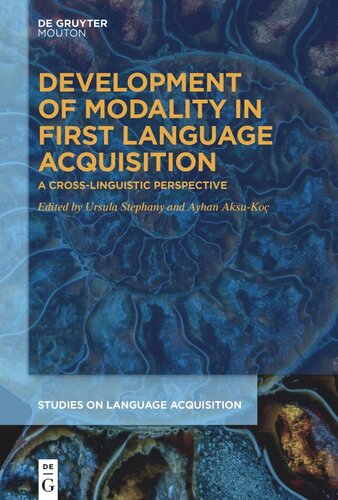

Most ebook files are in PDF format, so you can easily read them using various software such as Foxit Reader or directly on the Google Chrome browser.
Some ebook files are released by publishers in other formats such as .awz, .mobi, .epub, .fb2, etc. You may need to install specific software to read these formats on mobile/PC, such as Calibre.
Please read the tutorial at this link: https://ebookbell.com/faq
We offer FREE conversion to the popular formats you request; however, this may take some time. Therefore, right after payment, please email us, and we will try to provide the service as quickly as possible.
For some exceptional file formats or broken links (if any), please refrain from opening any disputes. Instead, email us first, and we will try to assist within a maximum of 6 hours.
EbookBell Team

4.3
88 reviewsThis book deals with the development of modality from a crosslinguistic perspective and is closely related to two earlier volumes on the development of verb and nominal inflection in first language acquisition (SOLA 21 and 30) both methodologically and theoretically. Each of the fourteen contributions studies the early development of the form and function of expressions of deontic and dynamic agent-oriented modality or epistemic and evidential propositional modality in one of fourteen languages belonging to different morphological types and language families (seven Indo-European and seven non-Indo-European).
The analyses are mainly based on longitudinal observations of children in their 2nd and 3rd years of life in conversational interaction with their caregivers, mostly the mothers. Main issues addressed are the development of directives and modulations of information in terms of certainty and evidentiality, also taking into account children’s developing social-pragmatic and cognitive skills. One of the main findings is that agent-oriented and propositional modality may develop in parallel depending on the typological characteristics of the language acquired. The decisive factor is whether notions of propositional modality are grammaticized and obligatorily expressed in the language. The findings are interpreted within non-nativist theoretical frameworks (Usage-based theories, Natural Morphology).